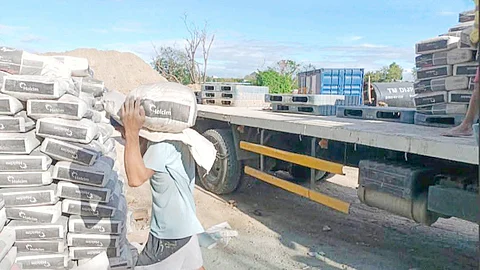
- NEWS
- the EDIT
- COMMENTARY
- BUSINESS
- LIFE
- SHOW
- ACTION
- GLOBAL GOALS
- SNAPS
- DYARYO TIRADA
- MORE

On its own, leading building solutions provider Holcim Philippines (HP) exercises the highest standards of environmental responsibility in its entire business operation. For example, it strictly adheres to low carbon footprint practices in cement production.
In 2023, HP introduced its low-carbon cement, Excel ECO Planet. The product is made at 30 percent less carbon footprint compared to ordinary portland cement, according to Mike Tagarao, HP sustainability manager.
The production of clinker for cement making produces carbon dioxide (CO2) and the conversion of limestone, the raw material for clinker, emits CO2. The more clinker put in cement to make it more durable, the higher the CO2 emission.
What Holcim did was to adjust its formulation for cement production to lessen the plant’s CO2 emission.
“We lowered the clinker content but still enough to meet its required strength,” Tagarao said.
All Holcim cement products have environmental product declaration (EPD) certification, he said. It means that a third-party verifier had assessed the cement’s declared 30 percent lower carbon footprint.
Meanwhile, Tagarao revealed the other sustainable practices of HP, such as co-processing or use of qualified waste to fuel kilns, and harvesting rainwater to reduce its plants’ use of ground water.
Co-processing is in line with the company’s practice of diverting municipal waste from landfills and transforming it into alternative fuels and raw materials for cement manufacturing.
Under a partnership with the local government of Carmen, Davao del Norte, HP’s unit Geocycle, will co-process up to 350 tons of sorted residual waste from the municipality at its Davao plant.
HP also tied up with SM Prime Holdings in launching the SM Waste Free Future campaign, which aims to reduce plastic waste in communities, and partnered with HOPE to support the Aling Tindera program, an initiative that incentivizes the collection of post-consumer plastics and promotes environmental education.
“We are thrilled to work with more partners in advancing the country’s sustainable development goals. We look forward to strengthening collaborations across sectors to further build progress in the country,” HP senior vice president and head of Geocyle Sam Manlosa said. WJG
